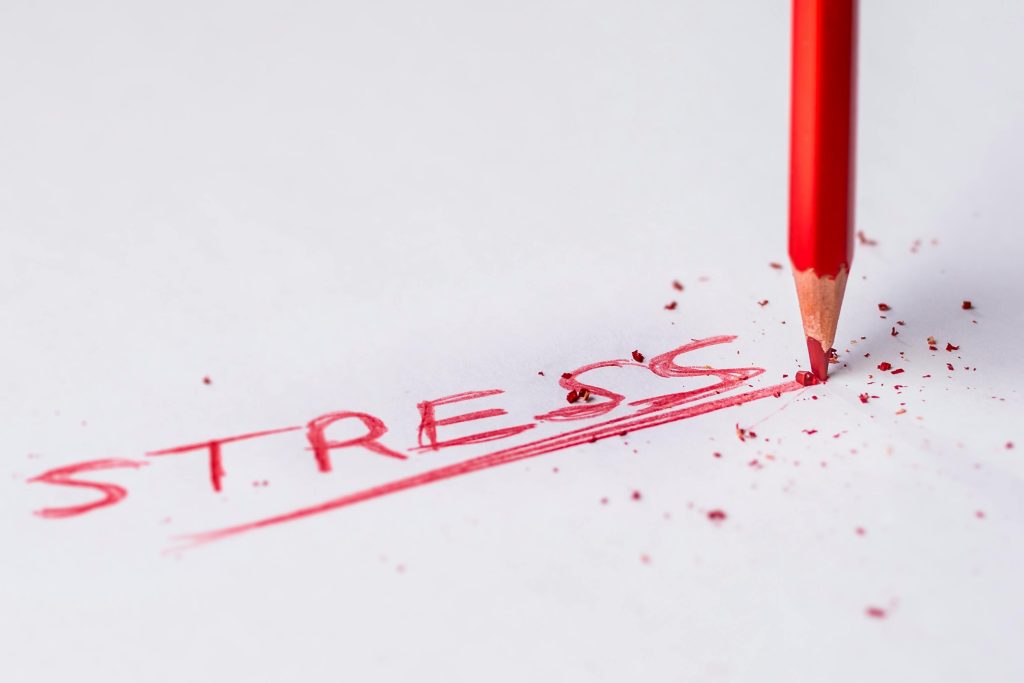How to Stay Calm Under Pressure in High-Stress Situations
Natalie Brooks July 18, 2025
In today’s fast-paced world, staying calm under pressure is an essential skill, especially when facing high-stress situations. Whether you’re preparing for a big presentation, dealing with a difficult customer, or making crucial decisions on a tight deadline, maintaining composure can be the difference between success and failure. The ability to stay calm under pressure not only improves decision-making but also enhances your mental and physical well-being.
In this article, we’ll explore practical and effective strategies to help you stay calm under pressure in high-stress situations. We’ll cover both immediate techniques and long-term habits to develop a calm mindset, so you can handle any stressful situation with confidence and poise.

Why Staying Calm Under Pressure is Crucial
High-pressure situations trigger the body’s fight-or-flight response, which is designed to protect you from danger. However, in modern-day situations, this response can hinder rational thinking and lead to poor decision-making. A calm mind is essential to assess the situation objectively, make informed decisions, and communicate effectively.
The Impact of Stress on Performance
Stress can negatively impact your cognitive function, memory, and focus. Research has shown that stress can impair your ability to process information and make decisions. A study by the American Psychological Association (APA) found that chronic stress is associated with increased risk for health problems such as heart disease, anxiety, and depression.
On the flip side, individuals who can remain calm under pressure are able to perform better in high-stakes situations. A study published in the Journal of Applied Psychology found that calmness under pressure is linked to improved performance in stressful work environments, leading to better results and enhanced professional growth.
Strategies to Stay Calm Under Pressure
Now that we understand the importance of staying calm under pressure, let’s look at some actionable strategies that can help you keep your cool when stress levels rise.
1. Practice Deep Breathing Techniques
One of the quickest ways to regain control during a high-stress situation is to practice deep breathing. This simple technique helps activate your body’s parasympathetic nervous system, which calms the body down and reduces the fight-or-flight response.
How to Do It:
- Inhale slowly for 4 seconds, hold for 4 seconds, and then exhale for 6 seconds.
- Repeat this process for a few minutes until you start feeling more relaxed.
Why It Works:
Deep breathing helps regulate your heart rate and reduces the production of stress hormones like cortisol. It creates a sense of calmness, allowing you to think more clearly and respond to the situation with a level head.
2. Reframe Your Thoughts
A significant part of staying calm under pressure involves managing your thoughts. Often, stress stems from our perception of the situation. If we view a challenging situation as a catastrophe, it can heighten feelings of anxiety and overwhelm. On the other hand, reframing your thoughts to focus on the opportunity or the potential for growth can help reduce stress.
How to Do It:
- Instead of thinking, “I can’t handle this,” try reframing it to, “This is challenging, but I can manage it step by step.”
- Focus on what you can control and take actionable steps toward resolving the situation.
Why It Works:
Cognitive reframing helps shift your mindset from one of panic to one of empowerment. By viewing the situation as manageable, you can approach it with more clarity and confidence.
3. Break the Task into Smaller Steps
When facing a daunting task or deadline, the sheer scale of the situation can feel overwhelming. Breaking the task into smaller, more manageable steps can help reduce the pressure. This technique allows you to focus on one step at a time, instead of feeling overwhelmed by the bigger picture.
How to Do It:
- Write down the specific tasks or actions required to complete the project.
- Prioritize them based on urgency, and start with the most critical or easiest tasks.
Why It Works:
By breaking down a big task into smaller chunks, you reduce the cognitive load on your brain. This approach makes the overall challenge seem less intimidating and allows you to focus on achieving small victories that add up to overall success.
4. Use Visualization Techniques
Visualization is a powerful tool for staying calm under pressure. By mentally rehearsing the situation and visualizing a positive outcome, you can prime your brain to handle stress more effectively.
How to Do It:
- Close your eyes and imagine yourself successfully navigating the stressful situation.
- Picture yourself staying calm, making thoughtful decisions, and achieving the desired outcome.
Why It Works:
Visualization helps prepare your mind for success. It strengthens neural pathways related to confidence and problem-solving, making it easier to stay calm when faced with real-life stressors.
Long-Term Strategies to Build Resilience
While these techniques can help in the heat of the moment, there are long-term habits that can help you build mental resilience and stay calm under pressure more consistently.
1. Mindfulness and Meditation
Mindfulness is the practice of being fully present in the moment, without judgment. Regular meditation can train your brain to stay calm and focused, even in stressful situations. Studies have shown that mindfulness meditation can reduce the body’s stress response and improve emotional regulation.
How to Do It:
- Set aside 10-15 minutes daily for mindfulness meditation.
- Focus on your breath or use a guided meditation app to help you stay present.
Why It Works:
Regular practice of mindfulness and meditation strengthens your ability to control your thoughts and emotions. It helps you stay calm under pressure by improving your awareness of the present moment and reducing the tendency to react impulsively.
2. Physical Exercise
Exercise is one of the most effective ways to reduce stress and improve your ability to stay calm. Physical activity increases the production of endorphins, which are chemicals in the brain that act as natural mood lifters. Regular exercise also helps reduce the effects of stress on the body and improves overall resilience.
How to Do It:
- Engage in at least 30 minutes of moderate exercise a few times a week, such as walking, running, or yoga.
Why It Works:
Exercise helps regulate stress hormones and improves overall mood, making it easier to manage stress when it arises. It also enhances your ability to focus and maintain composure during high-pressure situations.
3. Develop a Support System
Building a strong support system of friends, family, or colleagues can help you stay calm under pressure. Having people to turn to for advice or emotional support can make a significant difference when you’re feeling overwhelmed.
How to Do It:
- Foster meaningful relationships with people who offer encouragement, empathy, and practical help when needed.
- Don’t hesitate to reach out to them during stressful times.
Why It Works:
Social support provides emotional comfort and reassurance. Having a support system can reduce feelings of isolation and increase your confidence in managing challenging situations.
Conclusion
Staying calm under pressure is a valuable skill that can transform your ability to perform in high-stress situations. By incorporating immediate techniques such as deep breathing and reframing your thoughts, along with long-term habits like mindfulness and physical exercise, you can build resilience and maintain composure even in the most challenging moments.
With practice, you’ll find that managing stress becomes easier, allowing you to handle high-pressure situations with confidence and clarity. Ultimately, staying calm under pressure is not only beneficial for your career but also for your overall well-being.
References:
- American Psychological Association. (2017). Stress in America: The State of Our Nation. Retrieved from https://www.apa.org/news/press/releases/stress/2017/state-nation
- Journal of Applied Psychology. (2018). The Effects of Stress on Cognitive Performance. Retrieved from https://www.apa.org/pubs/journals/apl
- Mindful.org. (2021). How Mindfulness Can Help You Stay Calm Under Pressure. Retrieved from https://www.mindful.org







